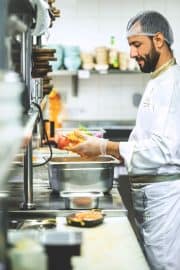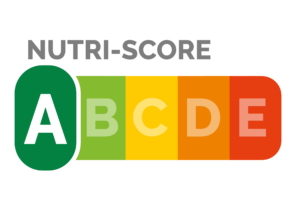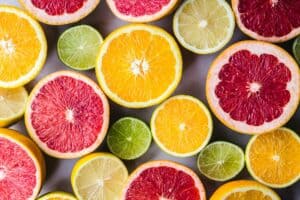Business development • Are you familiar with Dabas? Are your products listed there? Can you see the value of it? If your answer to all three questions is yes, you can stop reading now. All others should read on.
Your product is ready. The flavours are spot on. The quality is there. The packaging looks good. Now for something a lot less fun: the huge load of paperwork before the product can reach the consumers through catering and retail.
Loads of paperwork
Those who are going to sell your product require an incredible amount of information: brand, article description, EAN code, size, weight, minimum and maximum temperatures, source of the ingredients. Fairtrade or organic or MSC branding, market message, listing price … The list goes on and on.
The fast moving consumer goods (FMCG) giants in Sweden: Axfood, Bergendahls, Coop, and ICA, demand a digital certificate. And so does Martin & Servera, Menigo, Svensk Cater and the other large catering wholesalers. But smaller companies are normally content with a product sheet.
The giants also want the foodstuffs annex that has information on ingredients, nutrition, allergens, whether it’s halal or kosher etc. Catering companies need information on preparation, number of portions, nutritional and health claims and much more.
If you’re selling to local governments the National Agency for Public Procurement Authority demands that you provide a supplier’s declaration about origin, GMO-free, certified palm oil, labour conditions and so on.
It’s not easy being a food producer.
What if it would be possible to leave this paperwork to someone else? Someone who would take care of every detail. Or at least if you could get support throughout the whole process, so you wouldn’t need to do it again and again. This is what Dabas does.
A database for food and beverage
Dabas is an article database with information on most of the foods on the Swedish market. It’s open and free for anybody who needs information from it. But to appear in this database food and drink companies must pay an annual fee, and then a fee per product.
The database is run by Delfi Marknadspartner, who was there at the beginning when DLF, the association for companies supplying FMCGs took the initiative in 1991.
40 000 products

With the digitalisation in the 1980s customers of FMCG companies requested that an “electronic” version of the product sheets should be available in the dietary planning programmes they were using. But when the big planning programmes started charging for each single product the suppliers were registering, it became too costly. DLF decided to do something about it.
– We shouldn’t have to pay for all the systems who take part of our information. Instead we place the information in a central database, so anybody can retrieve it there, says Joakim Browall who is a partner at Delfi Marknadspartner.
In the beginning the database had about 5,000 articles by 50 food producers. Now, 28 years later, there are more than 40,000 products from more than 500 food producers.
More small and medium sized companies
Lately, Dabas has seen more and more small and medium sized companies in their database. One of the reasons is stronger regulations.
– The EU no. 1169/2011 provision on food information to consumers, published in December 2014, means that detailed information on any given FMCG must be available online. This has led to that also the small companies are realising they need a solution for that, says Joakim Browall.
An intermediary for the rest of the market
When a supplier registers a product in Dabas it becomes searchable by everybody – from authorities and companies to journalists and consumers.
In the Dabas database you can search or click your way around to find any of the more than 37,000 articles that are listed there. Each article has detailed information available to anybody, without the need to register an account or to pay for the information.
The benefactor hidden in the wings
– Dabas is an information provider for all the large procurement and dietary planning programmes in both the public and the private sector, says Joakim Browall.
Within hospital care, elderly care and services, a programme called Matilda is often used to plan diets of individuals, with information available in Dabas. For catering companies there are the dietary and menu planning services Aivo, Mashie, Kostdata and Aromi.
You can say that Dabas is the benefactor hidden in the wings.
Oiling the wheels of the public procurement machinery
An example of how Dabas is used in the procurement and dietary planning programmes is the handling of supplier’s declarations required when local governments do their procurements.
The National Agency for Public Procurement has produced criteria for sustainable procurement which are meant to contribute to reach the Swedish environmental objectives. When procuring local governments can state which of these criteria are to be fulfilled.
– In Dabas a company can state which of the criteria of the National Agency for Public Procurement regarding sustainable procurement a certain article fulfils. Dabas is then the information hub for verification of and adherence to the criteria, says Joakim Browall.
When local governments are procuring food and drink for schools, elderly care, hospitals etc. they can in these procurement and dietary planning programmes choose to see only those products which match their set criteria. They can also download the supplier’s declaration for every product and criterion. All supplied by Dabas.
Validoo – you mean vindaloo?
Another example where Dabas acts in the background is spelled Validoo. It is a brand owned by GS1 Sweden, which in turn is owned by the association for suppliers of FMCG and Svensk Dagligvaruhandel (SvDH).
GS1 Sweden is a member of the international GS1 organisation that sets standards giving products, services and places all over the world a unique identity. They collect data on these and share this information within and between business systems.
GS1’s most known standard is the barcode present on all products, probably on yours too. But that’s not where Dabas enters the scene, they are there in the part about sharing information.
Validoo is Sweden’s largest database with article information according to the GS1 standard. The database holds information on 330,000 products from 2,500 suppliers and is used by about 70 recipients within FMCG, catering, pharmacies and the Swedish outlet for alcoholic beverages: Systembolaget.
Article information is collected from various entry systems of which Dabas is the largest when it comes to food and beverage.
Joakim Browall thinks that Dabas and Validoo are complementary to each other:
– Together we contribute, in different ways, to a higher efficiency in the branch and we help each other to further develop the standard. Generally we work well together.
Please, share this article if you liked it.
[et_social_share]





